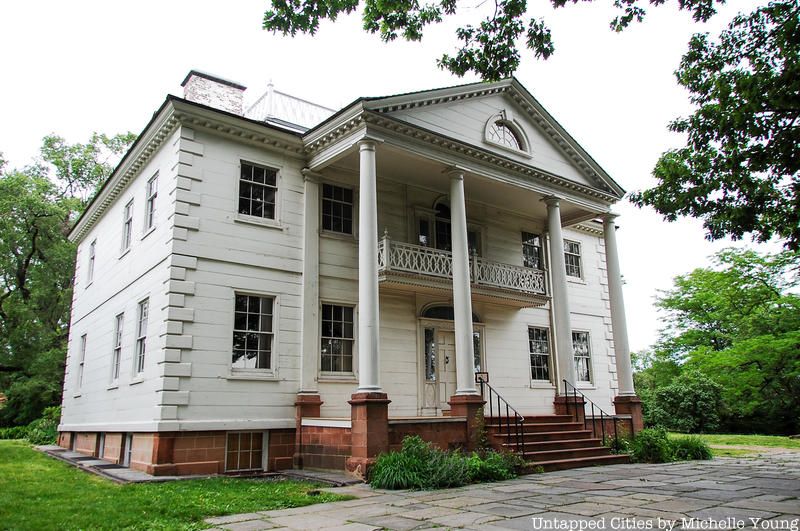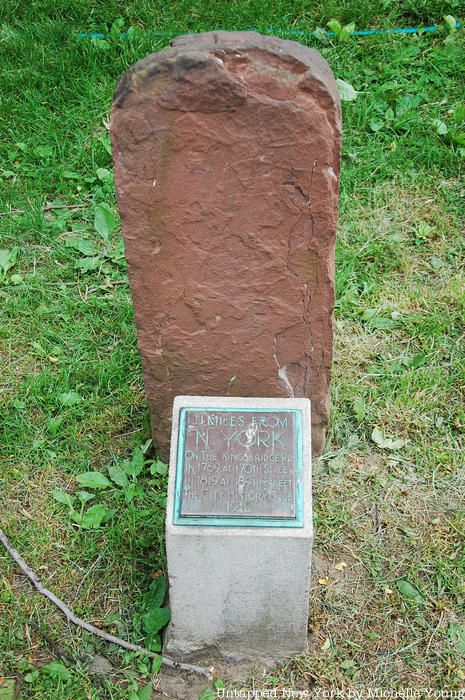Last-Minute NYC Holiday Gift Guide 🎁
We’ve created a holiday gift guide with presents for the intrepid New Yorker that should arrive just in time—


On its own, the Morris-Jumel Mansion embodies a wealth of New York City history, having witnessed more than two centuries of it, but in 1912, The City History Club endowed the property with even more historical significance by installing a colonial relic on the property. The artifact brought to the Morris-Jumel property was a colonial mile marker from Kingsbridge Road, an old post road that stretched from downtown Manhattan all the way to Albany. Today, the marker at the Morris-Jumel Mansion is one of very few that still exist.

The brownstone mile marker which can now be found on the north-east side of the Morris-Jumel property once sat along Kingsbridge Road, now St. Nicholas Road by the mansion. It was part of a way-finding system developed in the mid-18th century that marked the distance from Lower Manhattan to Albany. A marker was set at every mile along the road. The Morris-Jumel marker stood at the 11th-mile mark. Measurements started at City Hall in Lower Manhattan.
The marker was relocated to Roger Morris Park and a plaque was added to it in 1912 by The City History Club. The club had set up a “Milestone Committee” that worked to preserve the extant markers. The plaque recognizes a shift in the location of the 11th-mile mark in 1819 from 170th to 189th Street after City Hall moved.
Very few of these mile markers still exist today. The City History Club noted just five markers that it had saved in New York City. Today, in addition to the 11th-mile marker at Morris-Jumel, you can see the 12th-mile marker in Isham Park. The 10th-mile marker from Kingsbridge Road is currently in the collections of the New-York Historical Society. The Historical Society is also home to many markers from Boston Post Road. Other markers have been found in different areas of New York state along the old Albany Post Road route.

While the Morris-Jumel Mansion itself did not stand on the old post road, it was temporarily used as a roadside tavern. After the Revolutionary War, the property was turned over to the government by order of state forfeiture laws and sold to cover war debts. It was put up for sale and eventually converted into a tavern. On July 10th, 1790, George Washington and a handful of his political companions stopped there for dinner while on a trip to visit the site of Fort Washington. Washington was joined by future presidents John Adams and Thomas Jefferson as well as Secretary of the Treasury Alexander Hamilton and their wives. Both Jefferson and Washington noted the event in their diaries.
Next, check out Top 10 Secrets of the Morris-Jumel Mansion
Subscribe to our newsletter